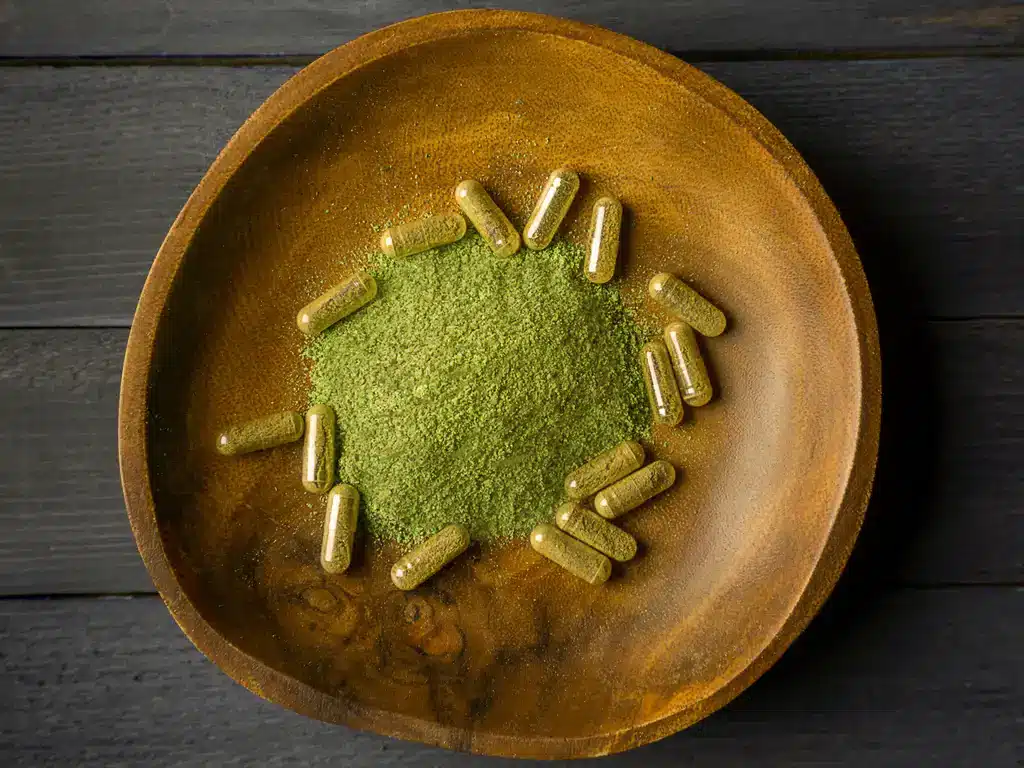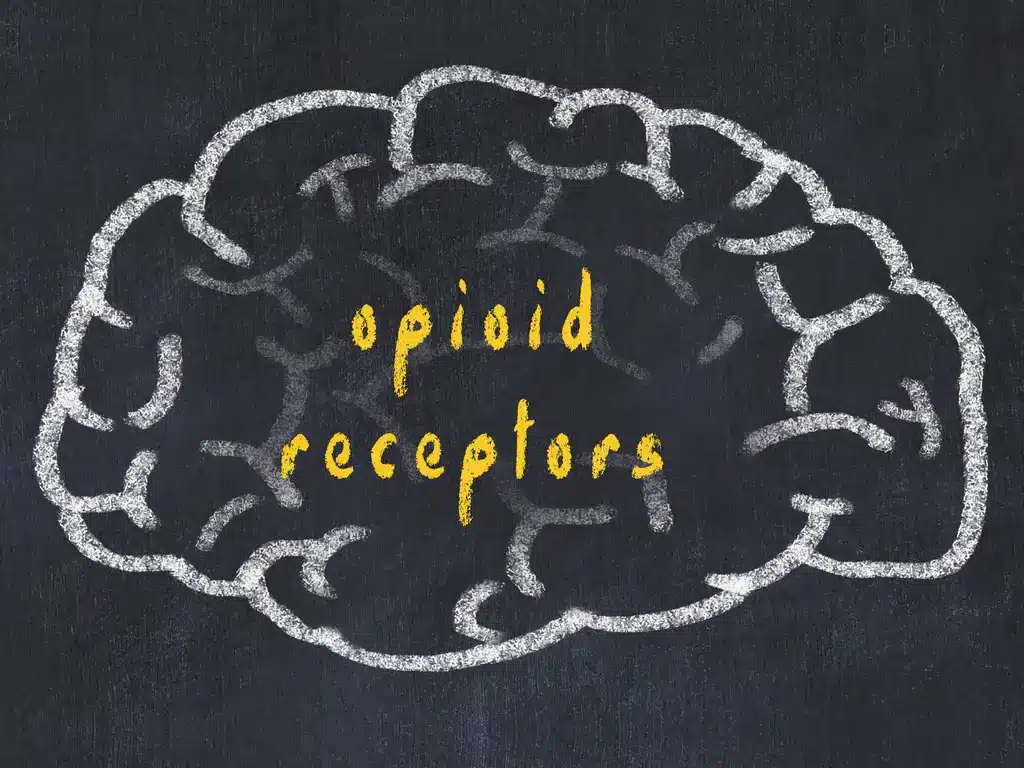Kratom is a legal drug in New Jersey and has been making national headlines lately. This plant-based drug comes from Southeast Asia and has been used for centuries by the locals.
Kratom is often used without doctor supervision in the United States to aid in the pain relief caused from opioid withdrawal symptoms, relieve muscle aches associated with chronic pain, and other conditions. However, kratom can also be addictive, and when someone stops using it, they can experience kratom withdrawal symptoms.
This blog post will discuss kratom withdrawal symptoms and what you need to know if you are dealing with them.

What Is Kratom?
Kratom is a plant species native to Southeast Asia, especially Thailand, Indonesia, and Malaysia. It has been used throughout the region for centuries due to its ability to produce stimulant effects at low doses, euphoria and sedative effects at higher doses. Similar to other substances, the body can become dependent on kratom if it is used regularly.
In recent years, kratom has become increasingly popular in Western cultures due to its potential uses as an herbal remedy to relieve pain. Those who use kratom typically report benefits ranging from stress relief to reduced anxiety and improved cognitive function.
Because of these beneficial effects, many believe kratom has promising therapeutic applications in the medical field, particularly in chronic pain management with hopes to replace nonsteroidal anti inflammatory drugs.
However, the U.S. Food and Drug Administration (FDA) has not approved kratom for medical use. Kratom misuse and abuse can also lead to serious side effects, including a diagnosis of substance use disorder and severe withdrawal symptoms.
How Do People Use Kratom?
Kratom use is typically ingested in two ways: powder form, by swallowing capsules or by brewing tea with the leaves. Some may mix kratom with other drugs, smoke kratom or take with food and beverages.
Unfortunately in New Jersey, Kratom is readily available online and at local smoke shops, tobacco stores, and other specialty shops.

What Does Kratom Do to the Brain?
Boasting two primary active ingredients, mitragynine and 7-hydroxymitragynine, kratom works synchronously to generate opioid-like effects on the brain. These compounds interact with mu opioid receptors in the brain, producing relaxing and calming sensations and pain relief.
Although kratom is not an opioid drug like morphine or heroin, it can still lead to a substance use disorder and addiction since it works on the opioid receptors in the brain.
When psychoactive substances like kratom are taken often, dependency occurs. Physical and psychological symptoms combined with withdrawal symptoms can happen once you stop using the substance. Kratom is believed to have the most similar effects and functions as opioid drugs since it works on some of the same opioid receptors.
In the case of kratom medical detox, experts aren’t clear yet on exactly how kratom affects the brain. One thing is certain, do not stop kratom cold turkey.
The withdrawal process is unique to each individual and withdrawal symptoms vary based on age, underlying medical conditions, history of Behavioral Health issues or a Behavioral Health disorder.

Signs That Someone Is Addicted to Kratom
Kratom drug addiction can be difficult to identify in someone, especially with a substance like kratom. However, much like an opioid addiction, there are sure signs indicate a person is addicted and needs help.
These include:
Needing higher doses of kratom over time –
Since kratom works on the same receptors as opioids, taking higher doses over time can increase tolerance and lead to dependence.
Spending a lot of time using or obtaining kratom –
If someone spends a large portion of their day using or trying to acquire more kratom, this could indicate that they have an addiction.
Neglecting responsibilities to use kratom –
An individual addicted to kratom may prioritize using it over other commitments such as work, school, or family.
Experiencing physical symptoms and/or psychological withdrawal symptoms when not using:
Withdrawal symptoms feel similar to an opioid withdrawal and are a sure sign the kratom withdrawal timeline has started.
Kratom Withdrawal Timeline
Similar to opiate withdrawal, research suggests the kratom withdrawal timeline begins with specific physical symptoms including anxiety, irritability, stomach discomfort, and insomnia.
Severe symptoms such as excessive sweating and tremors may also occur.

Symptoms of Kratom Withdrawal
Kratom withdrawal is real, and it can be tough to go through alone. Some experience severe symptoms and others moderate withdrawal symptoms. Kratom withdrawal can range from uncomfortable to downright painful.
Below are some of the most common symptoms associated with kratom withdrawal:
- Anxiety
- Insomnia
- Nausea, vomiting, abdominal pain
- Muscle aches and pains
- Sweating
- Irritability
- Depression
- Jerky movements
- Difficulty concentrating
- Problems with memory
- Cravings for kratom
- Runny nose
- Tremors
- Restlessness
In some cases, medical professionals treat withdrawal syndrome (physical and mental symptoms that occur after stopping or reducing intake of a drug) simply with benzodiazepines and NSAIDs, like Tylenol.
While severe withdrawal symptoms are rare, seeking medical attention is essential if you experience them. Your doctor can help you safely manage your withdrawal and support you.
When Do Kratom Withdrawal Symptoms Start?
The severity and length of kratom withdrawal vary drastically from person to person.
Commonly, withdrawal starts between 12 and 48 hours after the user’s last dose and can last anywhere from three to five days, but again — each person is unique and mild symptoms will happen for some while more severe symptoms of withdrawal will happen for others.
Medical Detox for Kratom Withdrawal Symptoms
Understanding drug and alcohol dependence is important when one’s drug abuse requires seeking help for treating addiction. Unfortunately, many turn to kratom to manage withdrawal symptoms from from opioid withdrawal.
In the cycle of drug abuse, when drug dependence occurs, medical detox is always the safest choice.
There are options to find addiction recovery and one of the most important steps is to consult with a doctor to help you determine the safest and most effective way to stop taking kratom and any other drugs that are causing issues.
Managing withdrawal symptoms can happen under the care of medical professionals and include different options and levels of care.
Addiction Treatment Options
Addiction treatment options address physical symptoms and psychological symptoms, while addressing cravings.
Intensive Outpatient Program (IOP)
An intensive outpatient program usually offers services daily and some programs offer the ability to detox on your own under the care of a doctor. Most IOP programs have a schedule and offer the ability to start with coming daily if needed and stepping down as identified goals are met.
If kratom withdrawal is coupled with opioid withdrawals it might be best for a higher level of care. Physical symptoms subside sometimes with medications and other times with strong emotional support.
Medication-assisted Treatment (MAT)
Currently, there are no medications specifically approved to treat kratom addiction. However, medication-assisted treatment (MAT) combines medications and counseling to help those struggling with drug dependency to manage cravings and abstain from using.
Examples of MAT medications include buprenorphine and naltrexone, commonly used in treating opioid use disorder. While these medications can help manage cravings and withdrawal symptoms, it is important to note that MAT does not treat underlying psychological or behavioral issues.
Support Groups
Support groups can offer a valuable resource as you embark on the journey stopping kratom use. By attending an IOP, you will begin to meet people who have experienced where you are now and can share how they overcame their cravings and learned to live without alcohol or other drugs.
Care Plus NJ Offers Addiction Recovery Services
Care Plus NJ is a non profit organiztion located in New jersey offering behavioral health services, addiction treatment services and much more to adults and adolescents willing to face their drug dependence.
The first step is to call and set up an appointment for an assessment. During all assessments at Care Plus NJ we ask questions to help guide you to the right level of care and services needed. Assessing the your history of kratom use as well as other drugs and alcohol, if there is a history of Behavioral Health issues in your family like severe depression or others who abused alcohol or a specific controlled substance. We ask about gambling, mental illness, current support from family and friends, medication history and any grief or severe psychological distress you may have experienced in your life.
Our goal is to help guide you to the right level of care so you can find help quickly and efficiently.
Our doctors and clinical team understands the brain chemistry from substance abuse and together with you, create an action plan to help you succeed in living the life you want to live.
Closing Thoughts
Kratom withdrawal and kratom addiction are similar to an opioid addiction and opioid withdrawal. Both can cause devastation and hardship on the body, mind, and spirit.
Care Plus NJ is a treatment center for substance abuse offering comprehensive treatment for addiction, including medical detoxification via doctor supervised medication-assisted treatment, and intensive outpatient programs.
Contact us today to learn more about our tailored programs that will help you on your path to recovery.
Sources:
https://www.fda.gov/news-events/public-health-focus/fda-and-kratom
https://www.healthline.com/health/food-nutrition/is-kratom-safe
https://nida.nih.gov/research-topics/kratom#legal
https://www.webmd.com/vitamins/ai/ingredientmono-1513/kratom
https://www.dea.gov/sites/default/files/2020-06/Kratom-2020_0.pdf

CarePlus NJ, INC. is dedicated to excellence in Behavioral Healthcare and has a commitment to life-long support needed by individuals and their families to ensure that they achieve their full potential and improve the quality of their lives.

